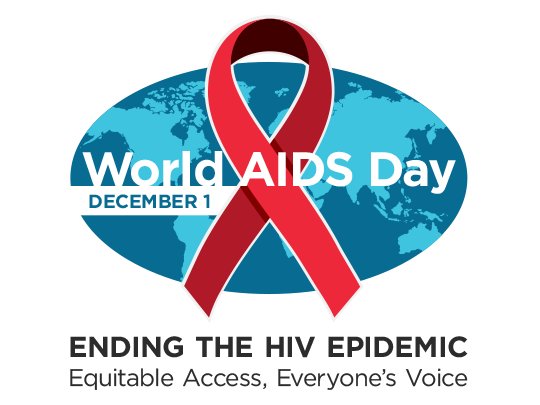AIDS stands for acquired immune deficiency syndrome, which means deficient immune system. An individual can get AIDS after becoming infected with the HIV virus. There are several ways you can get infected by the HIV virus, such as through unsafe sex, contact with the blood of an infected person for example by using contaminated injection needles or sharp objects that have been exposed to infected person blood (E.g in barbing saloon and manicure/pedicure saloons for ladies among others), blood transfusion, from mother to child during pregnancy, childbirth or breastfeeding. Because the virus is transmitted through blood, body fluids, pre-seminal fluid, breast milk you don’t have the risk of becoming infected with the virus by saliva or shaking hands with an infected person.
December 1 is World AIDS day, since the discovery of HIV in 1983 an estimated 110 million people have contracted HIV, 47.8 million people have died from the infection. Today, HIV continues to have a global impact, and below are some current data on the disease globally.
- 37.7 million [30.2 million–45.1 million] people globally were living with HIV in 2020.
- 1.5 million [1.0 million–2.0 million] people became newly infected with HIV in 2020.
- 79.3 million [55.9 million–110 million] people have become infected with HIV since the start of the epidemic.
- 36.3 million [27.2 million–47.8 million] people have died from AIDS-related illnesses since the start of the epidemic.
- 36.0 million [28.9 million–43.2 million] adults.
- 1.7 million [1.2 million–2.2 million] children (0–14 years).
- 400 children contract HIV every day
- 53% of all people living with HIV are women and girls.
Out of the 37.7 million HIV-positive people worldwide, 69% live in sub-Saharan Africa. There are roughly 23.8 million infected persons in all of Africa. 91% of the world’s HIV-positive children live in Africa. More than one million adults and children die every year from HIV/AIDS in Africa alone.
It is important to note that anyone can get it there is no immunity from HIV or any specific group that can contract it. Anyone can get HIV no matter their age (Even babies contract HIV), how they live, or what they do. You may not know you have it because there are no exact symptoms that suggest an HIV infection. An individual may have it a long time before he/she finds out that they are infected. It may take 5 to 15 years before you know that you’ve got AIDS this is because sometimes it takes longer for symptoms to occur. The initial symptoms are regular illnesses such as flu or a slight fever.
The only way to learn you have it is to get tested ideally before it progresses to AIDS. An HIV infection is now manageable. You can prevent HIV infection, you can protect yourself from an HIV infection by taking appropriate steps. Simple methods include abstinence from sex until you are married and devoted to one partner, not sharing hypodermic needles or sharp objects that have the risk of being exposed to the blood or body fluid of an infected person e.g In hair and beauty salons, dental visits e.t.c. You simply need to make sure foreign bodily fluids do not make their way inside you given that you cannot be aware of anyone’s HIV status even your family members.
When you have HIV virus but aren’t symptomatic, yet you are seropositive. That means that there are HIV antibodies in your blood. You don’t need to have any signs of disease at this stage. An HIV infection passes through four stages:
Stage 1
In the first stage, the body can show signs of disease like continuous fever and swollen glands while some people who are infected remain asymptomatic in their first stage
Stage 2
In the second stage, recurring airway infections, skin, mouth, and genital lesions often occur
Stage 3
In the third stage, you may have complaints like prolonged diarrhea, excessive weight loss, tuberculosis in the lungs, and other serious infections like meningitis.
Stage 4
Finally, besides serious infections, the nervous system may be affected in the fourth stage which can result in motor loss or age-related dementia.
As a result of advancements in research technology, HIV and AIDS can be treated with medication but can’t be cured. Antiretroviral drugs slow down the multiplication of the virus but don’t kill it. To support the treatment, AIDS patients often get medications to boost the immune system and fight against infections to enable them to stay healthy and live without the burdens of the diseases. Antiretroviral drugs have made living with HIV manageable, however, late-stage detection and management are still incredibly dangerous with a life expectancy of three years from detection. Given all this, the best we can do is to protect ourselves from contracting the virus through the measures mentioned above and get tested at least once a year to know our status as early detection increases our chances of managing the HIV virus and living a healthy life.


